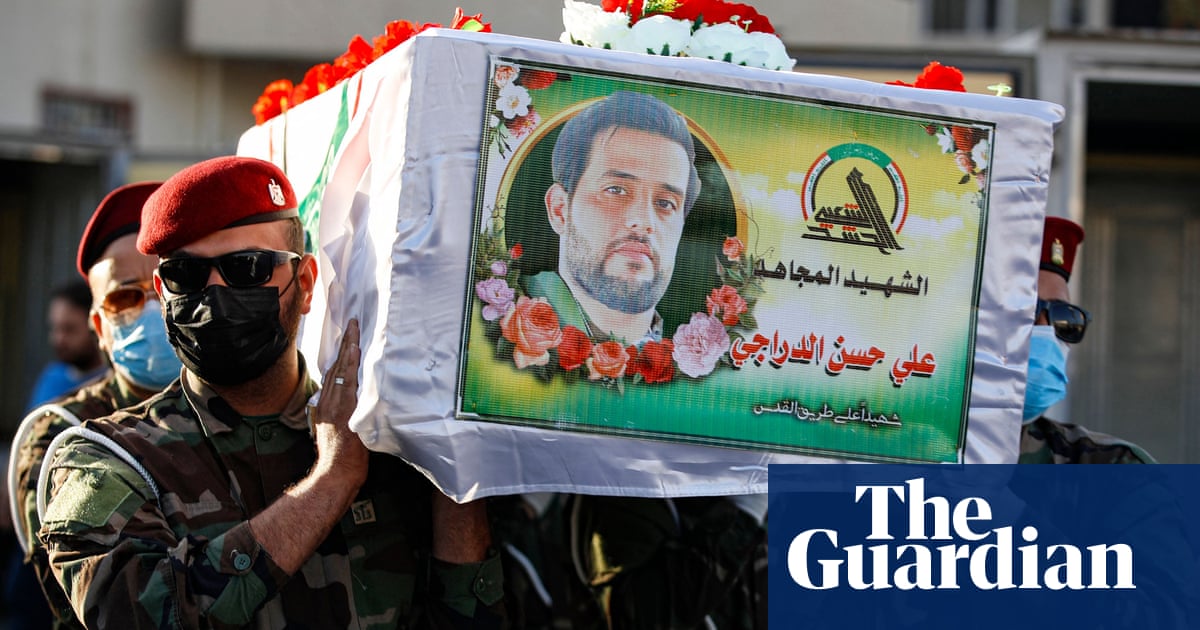machine gun fire, customary during funerals, illuminated the night sky as dozens of men converged in a dimly lit, unpaved alley on the edges of the sprawling slums of Sadr city to pay their respects. A giant picture of Ali Hassan al-Daraaji had been erected outside the family home in north-east Baghdad to announce his “martyrdom” in this week’s US airstrikes on Iraqi armed groups.
The series of strikes left nine fighters dead, including Daraaji, the first Iraqi fatalities linked to the Israel-Hamas war. Even as a tenuous truce takes hold in Gaza, the pace and intensity of clashes in Iraq has picked up, highlighting the risk of spillover in a country that has long been mired in conflict.
On Tuesday and Wednesday, the US targeted fighters it believed were responsible for dozens of attacks carried out on American troops in Iraq and Syria. The operations have been claimed under the banner of the so-called Islamic Resistance in Iraq in response to “the crimes committed by the enemy against our people in Gaza”, according statements released on its Telegram channel.
The Pentagon said it acted in defence of its troops, who returned to Iraq in 2014 to help the Iraqi government fight Islamic State. But the Daraaji family, whose history is steeped in fighting the 2003-11 US occupation of Iraq, sees the latest events as a continuation of a long history of unjust American policies in the Middle East, and as a sign that two decades after its invasion, the US is still treading on Iraqi sovereignty.



Yes 100%.